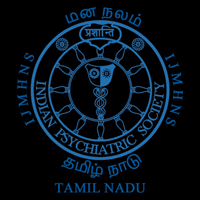Diabetes and Hypertension among patients with psychiatric illnesses attending outpatient services in a tertiary mental health centre: A cross-sectional study from south India
Abstract
Background: High burden of comorbid physical non-communicable diseases (NCDs) is observed in patients with psychiatric illnesses. However, little attention is paid to physical illnesses of this patient population. This study evaluated the self-reported frequency of physical NCDs in patients with psychiatric illnesses, current involvement of psychiatrists in managing these NCDs and association of NCDs with socio-demographic and clinical factors.
Materials and methods: This cross-sectional study was conducted in out-patient department of a tertiary mental health centre in southern India. Consecutive adult patients (N=450) fulfilling the study’s inclusion criteria were interviewed regarding comorbid physical NCDs including diabetes and hypertension, and aspects related to their diagnosis and treatment. Psychiatric diagnoses and psychotropic treatment information was obtained from electronic patient records maintained at the centre.
Results: Overall frequency of any physical NCD was 24.9%, with diabetes and hypertension reported by 15.8% and 8.7% of patients, respectively. Patients with diabetes or hypertension were more likely to be older, have a family history of diabetes/hypertension, or psychiatric illness for at least 5 years or longer. Less than 8% of patients with diabetes or hypertension were treated for their physical NCD by psychiatrists. Forty patients with elevated BP (≥140 and/or ≥90 mmHg) or at risk for hypertension were identified while conducting physical examination as part of the study.
Conclusion: Diabetes and hypertension are common physical NCDs in patients with psychiatric illness. Therefore, it is important that psychiatrists be aware of and identify patients who are at risk for such NCDs.

